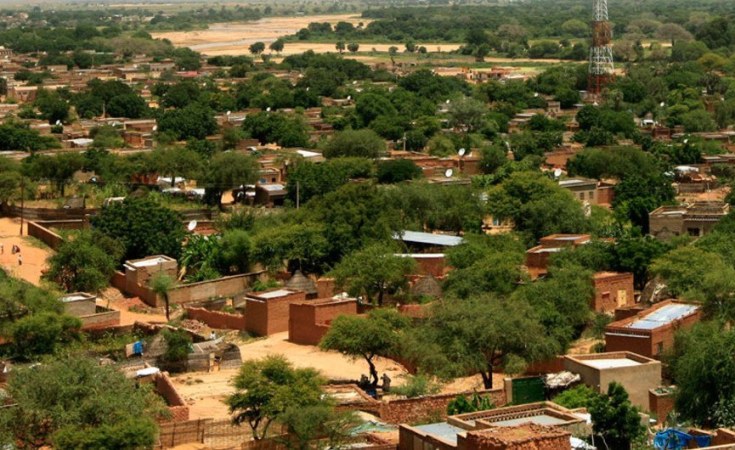Cairo — The summit of Sudan's seven neighbouring countries in the Egyptian capital concluded on Thursday with the participating leaders agreeing to establish a ministerial mechanism aimed at bringing an end to the ongoing violent conflict. The League of Arab States and the African Union are to implement the summit's outcomes.
The summit in Cairo yesterday concluded with a strong appeal to the Sudanese Armed Forces (SAF) and Rapid Support Forces (RSF) to immediately cease the war and engage in inclusive dialogue without external interference.
The leaders of Libya, Eritrea, Chad, the Central African Republic (CAR), Ethiopia, and South Sudan agreed on the need to facilitate humanitarian aid and devise practical solutions to halt the fighting.
The summit participants warned of Sudan's possible "descent into chaos that could lead to the spread of terrorism and organised crime", as reported by Reuters.
The leaders agreed to establish a ministerial mechanism, which will convene its inaugural meeting in Chad, to develop an action plan to achieve a comprehensive resolution for the bloody conflict that broke out in the Sudanese capital on April 15, and quickly spread to other parts of the country.
The summit firmly underscored the importance of Sudan's sovereignty and territorial integrity, stating unequivocally that the conflict is an internal matter for Sudan.
Sudanese journalist Ahmed Fathi told Radio Dabanga that "the final statement of the summit compels the presidents from the seven neighbouring countries to intervene and facilitate a Sudanese-Sudanese dialogue to halt the fighting".
He added that "while the Saudi-US initiative did not impose obligations or assign responsibilities, the summit of neighbouring countries agreed to hold the Arab League and the African Union accountable for implementing the summit's outcomes".
During the conference's opening, Egyptian President Abdelfattah El Sisi highlighted the negative impact of the violent crisis on the security situation in the region, the loss of many civilian lives, and the displacement of millions. He urged the international community to fulfil its aid pledges made last month.
Gratitude
The Sudanese government welcomed the results of the summit and reiterated its dedication to initiating a political dialogue once the war ceases, "with the aim of establishing a civilian government that will lead the country through the transitional period, culminating in inclusive elections".
The Sudanese authorities also expressed gratitude to Egyptian President Abdelfattah El Sisi, the neighbouring countries, Saudi Arabia for its "efforts through the Jeddah platform", and the United States of America for "their support in ending the war and alleviating the suffering of the Sudanese people".
The Sovereignty Council stated that "the SAF is prepared to halt military operations immediately if the rebel militia ceases attacking civilian areas, government facilities, and plundering, and setting up road blockades."
The RSF also welcomed the final statement of the summit of the Sudan's neighbouring countries. The militia also commended "the efforts of the United Nations, the African Union, IGAD, the European Union, the Arab League, and the Quartet, and express our sincere appreciation for all the brotherly and friendly countries that have supported and stood with our people during the ongoing crisis".
The spokesperson for the RSF stated in a tweet yesterday evening that they are prepared "to work with all stakeholders, to reach a comprehensive resolution to the Sudanese crisis, emphasizing to remain committed to restore a civilian led government and put an immediate end to the suffering of the Sudanese people".


